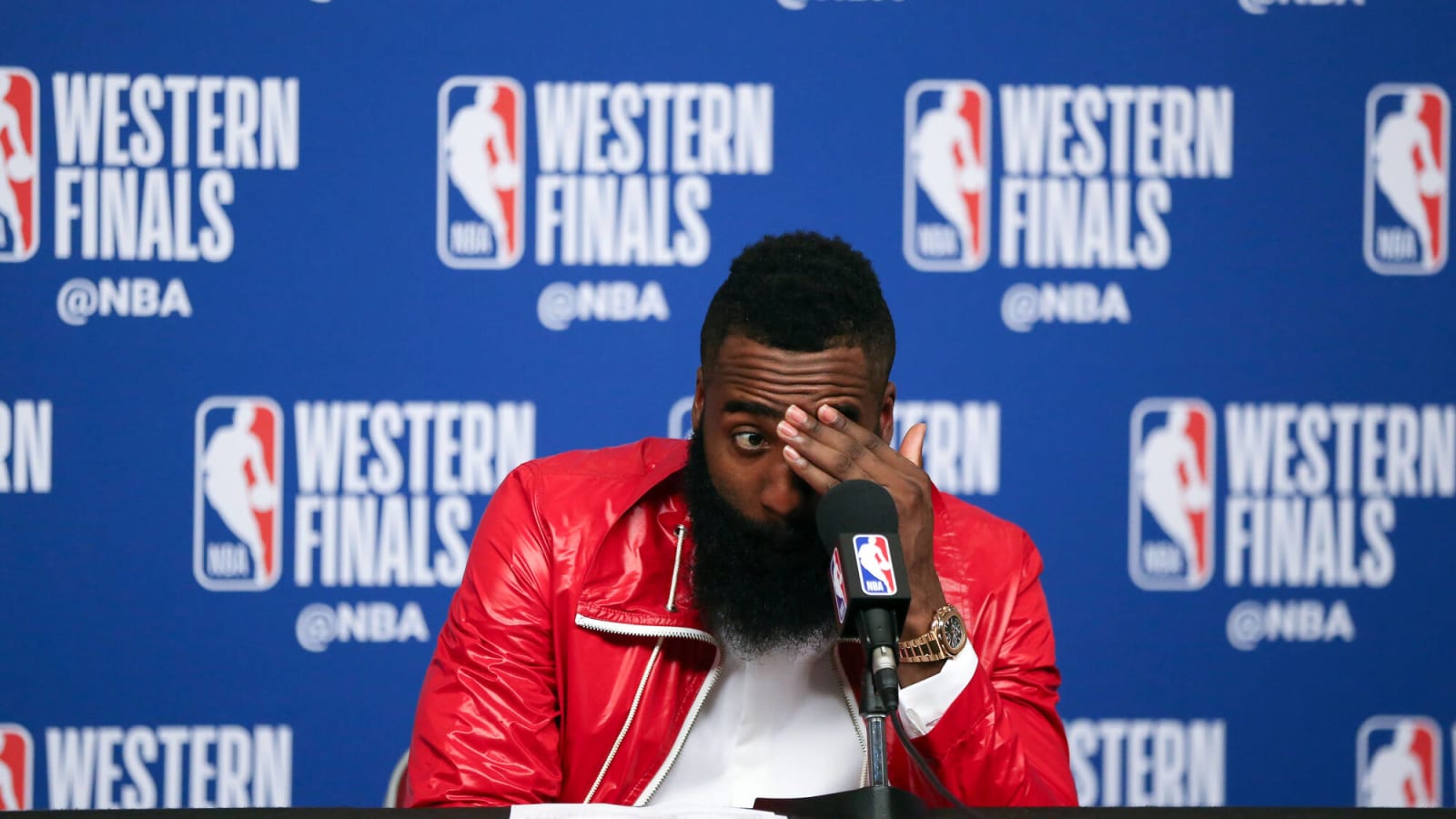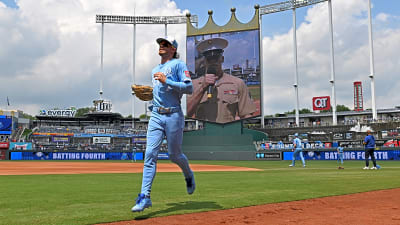
LeBron James' candid remarks on the 'Mind The Game' podcast shed light on the perplexing strategy employed by the Houston Rockets during their historic collapse in Game 7 of the 2018 Western Conference Finals. The Rockets' inability to connect on a staggering 27 consecutive three-point attempts left fans and analysts alike scratching their heads, and James expressed his bewilderment at their persistence in shooting despite the lack of success.
"27 straight threes and they kept shooting them. It's not like all them was 3-point shooters. It's not like they had f------ 5 Craig Hodges on their team or 5 Steve Kerrs on the floor where that's all they can do."
They had guys that can. Eric Gordon, you can get to the paint, James harden you can get to the paint... There's a time and place where analytics should be like get the f--- out."
In his assessment, James pointed out that while the Rockets boasted talented shooters like Eric Gordon and James Harden, their reliance on the three-pointer bordered on absurdity, especially given their ability to penetrate the defense and score in the paint.
He emphasized that it wasn't as though the Rockets had an entire lineup of only elite sharpshooters akin to Craig Hodges or Steve Kerr, whose primary skill was three-point shooting. Instead, they had players capable of driving to the basket and creating scoring opportunities in a variety of ways.
James' comments underscored the limitations of analytics-driven strategies in basketball, particularly when they fail to account for situational factors and the skill sets of individual players. While the analytics may have favored three-point attempts as a high-value shot, there comes a point where pragmatism should prevail over adherence to statistical principles.
The Rockets' stubbornness in continuing to hoist three-pointers despite their ineffectiveness serves as a cautionary tale for teams and coaches tempted to prioritize analytics over game context and player capabilities.
As James aptly put it, there are times when analytics should be disregarded in favor of a more balanced and adaptable approach to offense.
Ultimately, the Rockets' failure to adjust their strategy in the face of adversity cost them dearly, highlighting the importance of flexibility and strategic acumen in playoff basketball. LeBron James' insightful commentary serves as a reminder that while analytics can inform decision-making, they should not overshadow the fundamental principles of the game or the unique strengths of the players on the court.
The Rockets Game 7 Collapse Was Once In A Generation
The collapse of the Houston Rockets in Game 7 of the 2018 Western Conference Finals, where they missed a staggering 27 consecutive three-point attempts, stands out as a once-in-a-generation event in NBA history.
This unprecedented display of shooting futility left fans and analysts alike in disbelief, as the Rockets' inability to convert from beyond the arc ultimately cost them a chance at advancing to the NBA Finals.
What made the Rockets' collapse all the more remarkable was the nature of their missed shots. Out of the 27 three-point attempts, a significant portion—17 shots to be exact—were heavily contested, with defenders draped all over the shooters.
Another five attempts were slightly contested, while only five shots were deemed wide open. Despite the mounting evidence that their three-point barrage was failing miserably, the Rockets persisted in their long-range assault, refusing to adjust their strategy as the game slipped away from them.
One of the most perplexing aspects of the Rockets' offensive approach was their failure to capitalize on opportunities in the paint. Despite the relentless defense and the clear ineffectiveness of their three-point shooting, the Rockets stubbornly continued to settle for contested jumpers instead of attacking the basket and seeking higher-percentage scoring opportunities.
This lack of adaptability and strategic flexibility ultimately proved costly, as the Rockets squandered numerous possessions with ill-advised shots from long range.
Indeed, some of the shots attempted by the Rockets during their infamous shooting slump were nothing short of absurd. In the face of tight defense and a glaring lack of success from beyond the arc, the decision to continue launching contested three-pointers defied logic and common sense.
The Rockets' unwillingness to deviate from their game plan, despite overwhelming evidence of its failure, only compounded their struggles and contributed to their eventual defeat.
In hindsight, the Rockets' Game 7 collapse serves as a cautionary tale about the dangers of stubbornness and the importance of adaptability in high-stakes basketball. It stands as a rare and unforgettable example of the pitfalls of relying too heavily on a single facet of the game, even in the face of adversity
More must-reads:
- Stephen Curry gets brutally honest about Warriors' quiet offseason
- Former two-time All-Star seeking NBA comeback
- The 'Most points in a game by NBA team in 2024-25' quiz
Breaking News
Trending News
Customize Your Newsletter
 +
+
Get the latest news and rumors, customized to your favorite sports and teams. Emailed daily. Always free!








